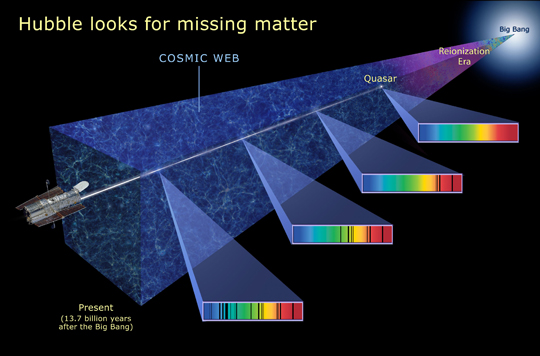The title of this piece is taken from "Georgics," by the Roman poet Virgil (70-19 BCE). Virgil expressed the subjective "arrow of time" that we all experience: "But time meanwhile is flying, flying beyond recall." Time is indeed at the core of everything that evolves. We remember the past, but not the future; we are afraid of death, not of the time before we were born; we feel that time flies when we're having fun. Yet, if we examine the basic laws of physics, which supposedly govern all phenomena in our universe, they are symmetric with respect to changing the direction of time. That is, the laws would not change if time were to flow backward. What is it then that gives time its direction? Or, put in the language of physics, why are so many macroscopic processes irreversible? In answering this question I will not discuss many of the secondary so-called "arrows of time" (e.g., the "radiative arrow," the "quantum arrow") since most of those are, in fact, a consequence of the more fundamental principle which I will discuss--the Second Law of Thermodynamics.
The Second Law of Thermodynamics states that the total entropy (a physically defined measure of the amount of disorder) of a closed (isolated) system never decreases. Anyone who ever watched the room of a teenager probably had the opportunity to see the Second Law in action. Similarly, Humpty Dumpty had all his pieces in their proper place (low entropy) when Alice saw him sitting on the wall in Lewis Carroll's Through the Looking Glass, but once he "had a great fall" the pieces were all scattered in complete disorder (high entropy).
Note that the Second Law of Thermodynamics does not mean that order cannot emerge from disorder in systems that are not isolated. For instance, if you look down into a round, open pot of oil being heated from below, you will notice that the amorphous oil suddenly takes the form of connected hexagonal shapes known as Bénard cells. Similarly, the large-scale structure of our universe--a cosmic web of filaments with galaxies at the connecting nodes (Figure 1)--emerged from a nearly homogeneous state. In spite of these local manifestations of emerging order, the total entropy of our expanding universe is ceaselessly increasing.

Figure 1. Schematic showing how the Hubble Space Telescope detects the cosmic web, through the absorption of light from distant quasars. Credit NASA/ESA, A. Feild (STScI).
But, if the fundamental laws of physics do not contain an "arrow of time," why does cosmic disorder constantly increase? This is most probably a consequence of the fact that, relatively speaking, our universe started from a very ordered state (low entropy). The last statement may sound surprising, given that, as I explained in a previous blog ("How Did Our Universe Begin?") the universe started in a state of thermal equilibrium at the Big Bang. Normally, thermal equilibrium is associated with maximal disorder. For instance, the entropy of a gas compressed into one corner of a box is much lower than that of the same gas after it has expanded to homogeneously fill the entire box. The explanation for the low entropy of the primordial universe can be found in the effect of gravity. For a given amount of mass, physicists Jacob Bekenstein and Stephen Hawking taught us, a black hole has a much, much higher entropy than that associated with the particles which formed that black hole. In fact, the entropy associated with the single black hole at the center of the Milky Way galaxy is orders of magnitude higher than the entropy that all the protons in the observable universe had at the Big Bang! In other words, by starting from a smooth, diffuse state, our universe began with a much lower entropy than it could have had, if more mass would have been concentrated in the form of black holes at the beginning. The key point is that once you start from an ordered state, the evolution towards disorder is inevitable, since there are many more possibilities for disorder than for order (in the physics lingo, there is more "phase space"). For example, while there is only one way in which all the pieces of a jigsaw puzzle fit together, there is an infinite number of ways in which they can lie scattered in a box.
The conclusion from all of this is astounding: The fact that we have an arrow of time is a direct consequence of the initial cosmological conditions. Since we appear to be living in a forever-accelerating universe, with spacetime stretching indefinitely at an ever-increasing rate, the entropy will continue to rise, leading eventually to a cold death (see my blog "The Fate of the Universe"). Long before that, however, the entropy will be so high that it may become increasingly difficult for something as ordered as life to emerge. Even though this will not happen for many billions of years, from a cosmic perspective, we should take the advice of Horace (65-8 BCE), another Roman poet, who advocated: "Carpe diem quam minimum credula postero"! ("Seize the day, putting minimal trust in the future.")